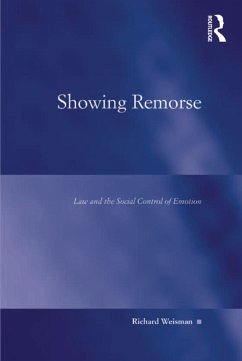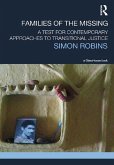The primary focus of this work is, unlike previous studies, not on whether the wrongdoer meets our expectations over how and when remorse should be shown, but on how the community reacts when these expectations are met or not met. Using examples drawn from Canada, the United States, and South Africa, the author demonstrates that the showing of remorse is a site of negotiation and contention between differing groups. This study also shows that the process of deciding when and how remorse should be expressed contributes to the moral ordering of society as a whole.
Dieser Download kann aus rechtlichen Gründen nur mit Rechnungsadresse in A, B, BG, CY, CZ, D, DK, EW, E, FIN, F, GR, HR, H, IRL, I, LT, L, LR, M, NL, PL, P, R, S, SLO, SK ausgeliefert werden.









